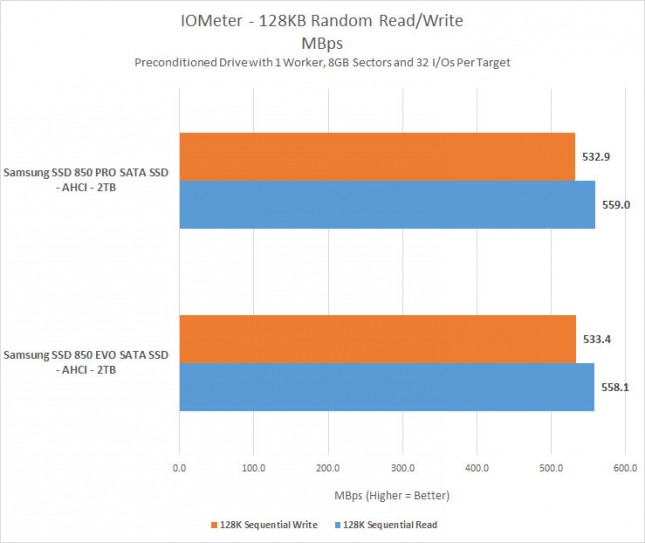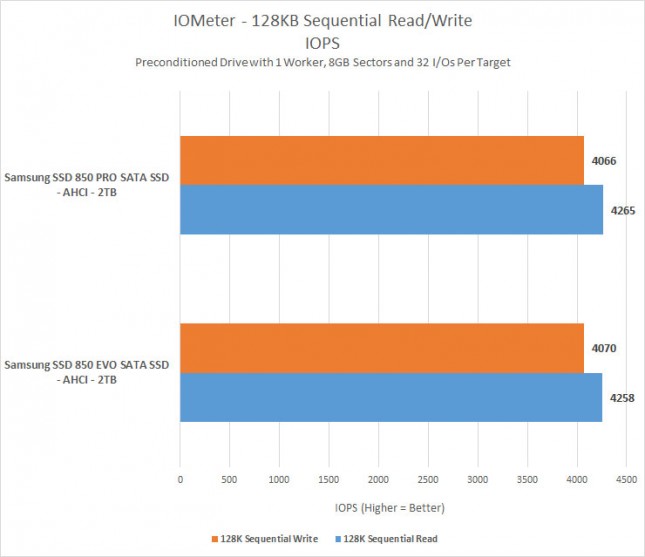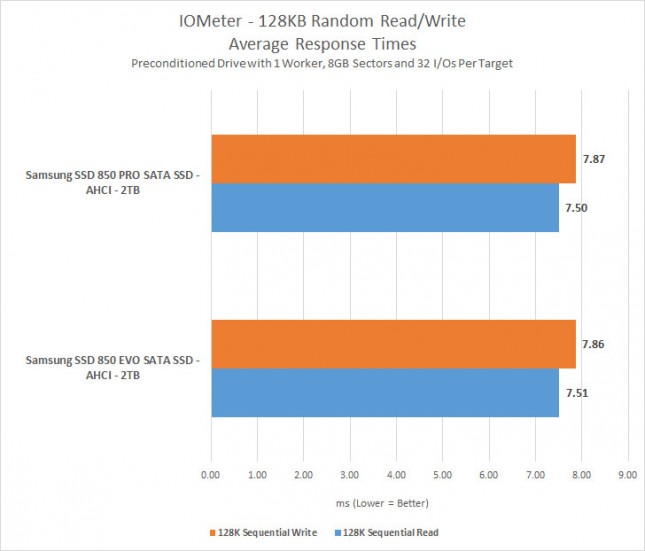Samsung 850 PRO 2TB SSD Vs Samsung 850 EVO 2TB SSD
IOMeter Sequential Performance
Starting here in April 2015 Legit Reviews has brought ack synthetic IOMeter v1.1.0 testing to our high-end Solid-State Drive reviews as we feel that the canned benchmarks no longer show enough of the performance picture nor do they expose many of the heat issues that we are starting to encounter on M.2 PCIe SSDs. We start out testing each drive with IOMeter, but first we prepare the drive. This is done by using Parted Magic to complete a full Secure Erase each and every drive. Next we use IOMeter to prefill the drive by performing the industry standard 128KB, aligned, sequential write workload across the entire drive for a period of 20 minutes. Once the drive is conditioned we run our saved sequential test profile that runs our 128KB test for two minutes without any idle time in between the tests. The queue depth is set to 32 as we feel with NVMe drives starting to come out that we need to increase our IO depth.
The 128KB Sequential Read/Write test is done primarily to make sure the drives we are testing meet or surpass the manufacturer specifications for sequential Read/Write performance. The Samsung 850 EVO and 850 PRO 2TB drives are both rated at up to 520 MB/s sequential write, but the 850 PRO has a 550 MB/s sequential read rating while the 850 EVO has a 540 MB/s sequential read speed. We were able to top our drive out at 558-559 MB/s read and 533 MB/s write, which is actually faster than their rated speeds.
For those that like to know the IOPS results you are looking at around 4,300 IOPS for the sequential read and 4,100 IOPS on the sequential write.
Having high IOPs per second is generally considered good, but you also look at the latency when interpreting the results. Just because the IOPs are high it might not mean that the data is being delivered at a reasonable latency and this could cause for a poor user experience. The Samsung 850 EVO and 850 PRO 2TB drives were found to have just under 8ms on the average response times, which is okay for a SATA drive.



